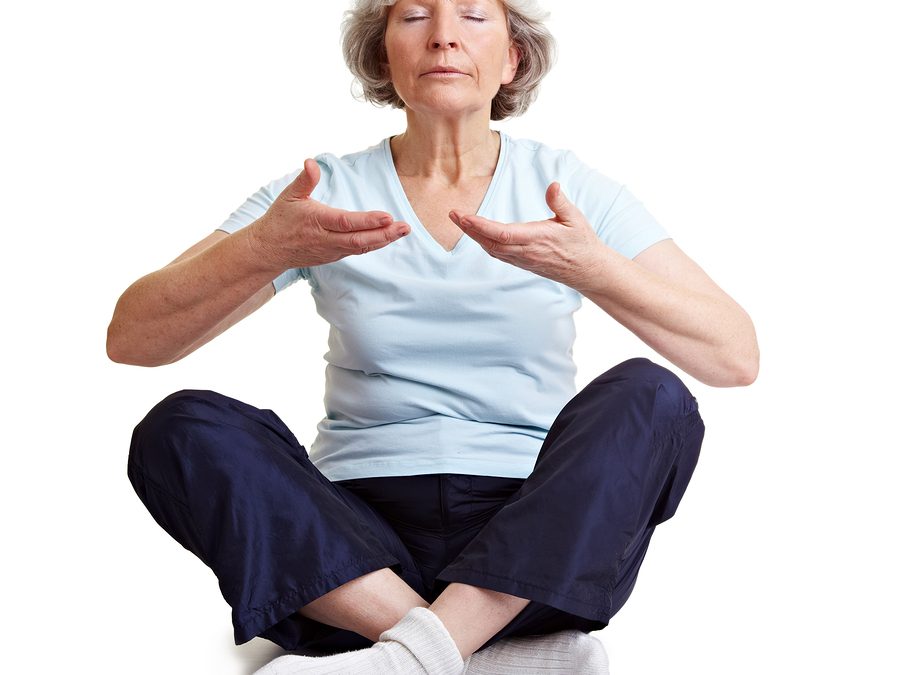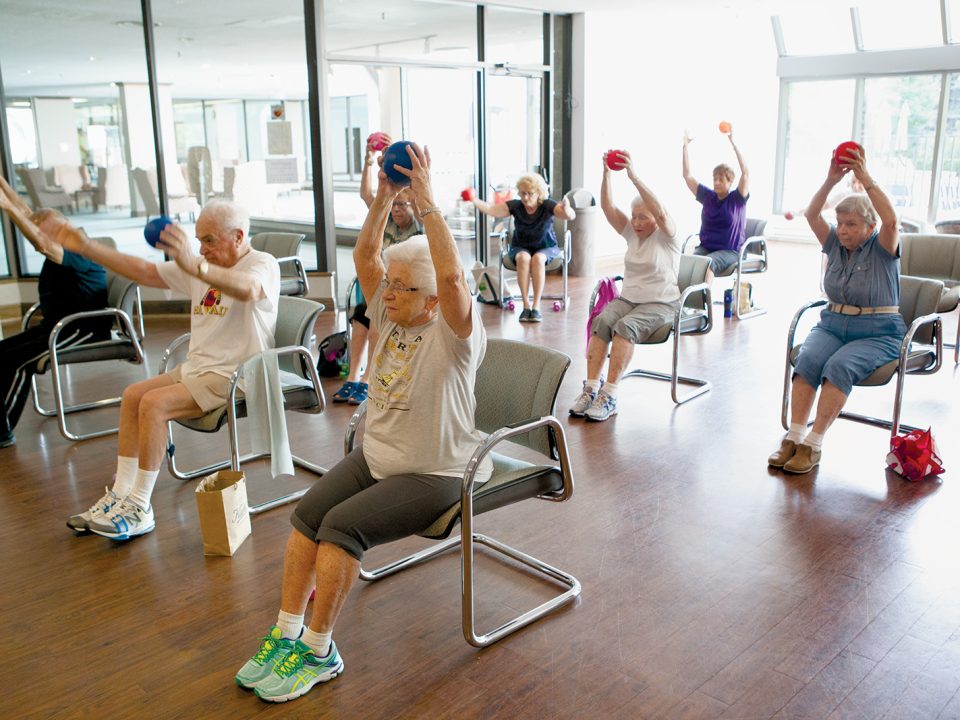
Nurses don’t expect to be thanked but deserve to be: campaign
December 2, 2018
Café at residential aged care home offers employment for people with disability
January 6, 2019The Benefits Of Mindfulness Meditation For The Elderly

Old senior woman meditating and relaxing with breathing exercises
The Benefits Of Mindfulness Meditation For The Elderly
‘Mindfulness’ is a popular catchword these days. We are inundated with books, shows, movies, articles and even unsolicited emails celebrating the benefits of mindfulness and inviting people to try it.
Despite the hype, research clearly indicates that ‘mindfulness’ meditation practice has a positive impact on well-being.
The popularity of Mindfulness is in large part due to the work of Jon Kabat-Zinn, who developed the ‘Mindfulness-Based Stress Reduction (MBSR) Program at the University of Massachusetts Medical School in 1979. Although the focus of his program was initially for people with chronic pain, his method was eventually broadened to be used as complementary therapy for nausea, insomnia, additive behavior and other related issues.
In addition to ‘Mindfulness’ there are various other types of meditation including:
- Transcendental Meditation
- Zen Meditation
- Vihangam Yoga
- Biofeedback Therapy (Relaxation)
What is Mindfulness Meditation?
Meditation has been practiced by most religions for thousands of years. However you need not be religious to practice meditation.
Mindfulness is the practice of sitting down daily in a quiet place and holding awareness of the present moment.
Gautama Buddha, a sage who lived in the 6th century, discovered that the source of suffering came from our attempt to escape from our direct life experiences.
The practice of Mindfulness can lead us to change things that can be changed and accept things that cannot be changed. Practitioners of mindfulness feel that they have a better understanding of themselves, other people, and of life itself.
When we are mindful we are content instead of wishing for things to be different.
Mindfulness for the Elderly
In nursing homes and other long-term care facilities, loneliness, depression, and anxiety are considerable risk factors for residents.
Mindfulness may help elders to find peace within themselves with daily practice.
Research indicates that mindfulness for the elderly is an encouraging intervention that is well worth introducing. It is suitable for high functioning clients.
Benefits of Mindfulness for the Elderly
- Relaxation
- Strengthening of the immune system
- May improve sleep
- Activates the ‘happy’ part of the brain
- Sharpens and focuses the mind
What Mindfulness is Not
- Mindfulness in not ‘Thinking about nothing’
- Mindfulness is not ‘Personal development’
- Mindfulness is not ‘Stop thinking’
- Mindfulness is not ‘Self-improvement’
Mindfulness practice is an exercise to simply allow you to get in touch with your own self in a deep and satisfying way.
Awareness & Acceptance: The Principles of Mindfulness
All meditation traditions have as a starting point a focus on breathing and the body. Most of the time we take our bodies for granted. Exploring the physical sensations of the body without analysing or manipulating them can have profound implications on one’s health.
There are two important aspects to consider when practicing Mindfulness: awareness and acceptance. Awareness and acceptance of the body promotes tension release and improves concentration.
How to Practice Mindfulness
Here is a basic framework for beginning a mindfulness practice.
- Invite a small group of three to four people to practice mindfulness together. It is important to practice daily to form a habit and get the most benefits from it.
- Designate a group leader – if you are not comfortable leading the group yourself, delegate to a calm and gentle volunteer willing to help.
- Ensure you have quiet place where people can sit uninterrupted, and with few sensory distractions.
- Everyone should be seated comfortably with hands resting lightly on the knees and eyes closed.
- The group leader will talk the group through an intentional and systematic guided body scan after a few deep breaths.
A Guided Mindfulness Meditation transcript has been provided however you may also use other online guided meditations. There are dozens of free guided meditations available online ranging from 5, 10 & 20 minutes to 1 hour long.
Alternatively, you may hire a Meditation instructor to provide a few lessons on breathing, body scan, or any other type of meditation.
What to Expect
Simple? Not really. It is amazing how the mind wanders incessantly during practice. There will be a lot of analysing, reminiscing, judging, and also the surfacing of emotions such as: sadness, enjoyment, surprise and grief. This will pass with time.
One cannot stop the mind from wandering. Every time the mind strays, bring it back unemotionally to the focus. After a few weeks of daily practicing clients may notice that they are more serene and that things that upset them before no longer bother them.
The more you practice, the easier it becomes. The objective is to get in touch with the body and to train the mind to pay attention to the present moment.

Old senior woman meditating and relaxing with breathing exercises
This article was originally published on www.goldencarers.com in July 2016. Author unknown.










